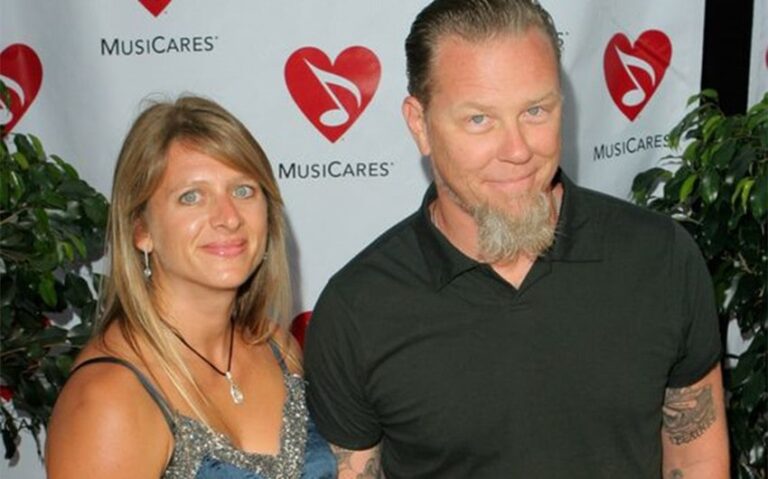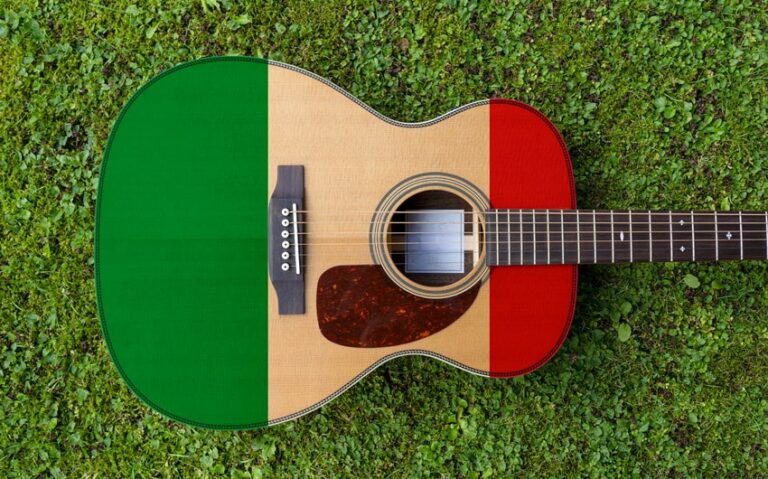100 Beautiful Names That Mean Freedom for Your Child
Choosing a name for a child is a significant decision, one that carries hopes and aspirations. Many parents seek names that mean freedom, hoping to inspire a life imbued with independence and strength. These names often carry deep cultural significance, representing the enduring human desire for liberty and self-determination.
In this article, we delve into the beautiful and profound meanings behind these names from various cultures, highlighting how each one can uniquely influence and shape a person’s identity. Whether you’re drawn to Greek heroism or African resilience, these names offer a rich tapestry of choices.
Boy Names That Mean Freedom

- Leutherios (Greek): Meaning “the liberator,” this name carries a strong connotation of freedom and liberation.
- Fayiz (Arabic): Translates to “victor” or “successful one,” often associated with overcoming constraints.
- Erle (English): Derived from Old English, meaning “nobleman,” “warrior,” or “prince,” suggesting the freedom and autonomy associated with nobility.
- Charter (English): Directly related to the idea of liberty, as charters historically represent the granting of rights and freedoms.
- Emancipator (Latin): A name that literally means “one who sets free,” ideal for a family valuing freedom and liberation.
- Saoirse (Irish): Although traditionally a female name, Saoirse, meaning “freedom,” has been used for boys, reflecting a modern, unisex approach to names.
- Gerry (German): A short form of Gerald, this name means “rule of the spear,” symbolizing the power and freedom of ancient tribal leaders.
- Drake (English): Originally meaning “dragon,” this name conveys the power and freedom of mythological creatures that roam the skies.
- Isra (Arabic): This name means “nocturnal journey,” which carries a spiritual freedom significant in many cultures.
- Jedrek (Polish): Meaning “strong, manly,” indicative of the freedom and independence associated with strength.
- Lorcan (Irish): Translates to “little fierce one,” highlighting the freedom to defend and assert oneself.
- Marius (Latin): Though traditionally associated with the sea, it suggests vastness and the freedom of the ocean.
- Ned (English): A diminutive of Edward, meaning “wealthy guardian,” which suggests the freedom afforded by economic independence.
- Paco (Spanish): A diminutive of Francisco, this name connotes a free spirit, often associated with Saint Francis of Assisi‘s love for animals and nature.
- Quillon (French): Meaning “crossing swords,” symbolizing freedom through strength and honor in battle.
- Raiden (Japanese): A name derived from the Japanese god of thunder and lightning, representing natural forces that are free and unrestrained.
- Taras (Ukrainian): Name of the legendary founder of Kyiv, symbolizing the freedom and independence of a leader.
- Urbano (Italian): From the Latin Urbanus, meaning “from the city,” reflecting the freedom and opportunities city life offers.
- Vitus (Latin): Meaning “life,” associated with vitality and the freedom it brings.
- Willem (Dutch): A form of William, meaning “resolute protector,” often associated with the protective freedom granted by a strong leader.
Girl Names That Mean Freedom
- Eleuthera (Greek): Derived from the Greek word for freedom, this name embodies liberty and independence.
- Liberty (English): Directly connoting freedom, it’s a popular name in English-speaking countries, symbolizing the state of being free.
- Frida (German): While often associated with peace, this name connotes freedom as well, stemming from its root word ‘frid’ meaning peace and freedom.
- Saoirse (Irish): This name means “freedom” or “liberty” and has gained popularity outside of Ireland, especially among those championing freedom.
- Carla (German): Derived from the Germanic word for “free man,” it is commonly adapted for girls, though originally gender-neutral.
- Lysistrata (Greek): A historical name meaning “releaser of war,” from the famous Greek comedy, symbolizing the freedom from conflict.
- Isra (Arabic): Meaning “night journey,” which relates to spiritual freedom and enlightenment.
- Shirin (Persian): Although it typically means sweet, it’s also associated with cultural freedom and artistic expression in Persian literature.
- Asha (Indian): Derived from Sanskrit, meaning “desire” or “hope,” symbolizing the freedom to dream and change one’s fate.
- Georgette (French): Feminine form of George, originally from the Greek word for “farmer” or “free man.”
- Emancipacion (Spanish): A unique name meaning “emancipation,” reflecting freedom and liberation, particularly from oppression.
- Mireille (French): Although it means “to admire,” in a broader sense, it suggests the freedom to marvel and enjoy life.
- Cherut (Hebrew): Meaning “freedom” in Hebrew, this name is rare and symbolically powerful.
- Galina (Russian): Derived from the Greek “galene,” meaning “calm,” “serene,” suggesting the freedom from turmoil.
- Lea (Hebrew): While primarily meaning “weary,” it is also associated with the wild cow or antelope, symbolizing natural freedom.
- Harriet (English): Derived from the ruler Henry, it connotes “estate ruler” and has come to symbolize leadership and independence.
- Zlata (Slavic): Meaning “golden,” it is metaphorically associated with the priceless nature of freedom.
- Helen (Greek): Meaning “the bright one” or “shining light,” Helen connotes the freedom and clarity that comes with light.
- Wilhelmina (German): Meaning “resolute protection,” it symbolically grants the freedom that comes from strong, protective forces.
- Althea (Greek): Meaning “with healing power,” representing the freedom from physical or spiritual ailment.
Unisex Names That Mean Freedom
- Alex (Greek): Derived from Alexander, meaning “defender of the people,” a name that symbolizes the freedom to protect and serve.
- Casey (Irish): Meaning “vigilant” or “watchful,” this name reflects the freedom and responsibility of being one’s own guardian.
- Drew (Scottish): Shortened form of Andrew, meaning “strong and manly,” Drew symbolizes the strength required to maintain freedom.
- Jordan (Hebrew): Referring to the river Jordan, which symbolizes flowing freedom and the journey towards liberation.
- Kai (Hawaiian, Japanese, Navajo): In Hawaiian, Kai means “sea,” in Japanese “forgiveness,” and in Navajo, “willow tree,” each reflecting aspects of freedom and natural strength.
- Morgan (Welsh): Meaning “sea-born” or “sea defender,” suggesting the vast, unbound freedom of the ocean.
- Quinn (Irish): Derived from the Gaelic word “O’Cuinn,” meaning “descendent of Conn” (wisdom, intelligence, chief), Quinn symbolizes the freedom of thought and leadership.
- River (English): Symbolizing a natural flow that cannot easily be stopped, embodying the essence of freedom.
- Sage (Latin): Meaning “wise,” reflecting the freedom that comes from wisdom and knowledge.
- Skyler (Dutch): Meaning “scholar,” indicating the freedom gained through learning and understanding.
- Terry (German): Derived from Theodoric, meaning “ruler of the people,” which connotes the freedom and responsibility of leadership.
- Avery (English): Meaning “ruler of the elves,” a mystical interpretation that evokes a sense of otherworldly freedom.
- Devon (English): From the name of the county in England, representing open spaces and the freedom of nature.
- Marley (English): Derived from Old English meadow names, signifying the vast openness and freedom of fields.
- Reese (Welsh): Meaning “ardor,” it captures the spirit of passionate freedom in pursuit of one’s desires.
- Riley (Irish): Meaning “valiant,” suggesting the courage required to live freely and resist oppression.
- Robin (German, English): Evoking the free-spirited nature of the bird, a universal symbol of joy and freedom.
- Taylor (English): Originally an occupational surname for a tailor, symbolizing the freedom and creativity of crafting.
- Cameron (Scottish): Meaning “crooked nose,” which originally identified a unique family, now symbolizing individuality and the freedom to be different.
- Leslie (Scottish): From a Scottish surname derived from a place name, meaning “garden of hollies,” reflecting the natural freedom of garden spaces.
Greek Names That Mean Freedom
- Eleftheria: Meaning “freedom” directly, this name is poignant for its clear dedication to the concept of liberty.
- Lysander: Means “liberator” or “one who is freed.” It combines “lysis” (freedom) with “aner” (man), reflecting a strong and free individual.
- Androcles: Derived from the elements “andros” (man) and “kleos” (glory), this name suggests the glory of freedom and the human spirit to overcome.
- Eleutherios: A variant of Eleftheria, meaning “free,” it carries a robust historical and cultural significance in Greece.
- Doris: Though typically a female name, it comes from the Greek Doris meaning “Dorian woman.” The Dorians were known for their less stratified society, which may imply a form of social freedom.
- Agora: Translates to “gathering place” or “assembly,” reflecting the ancient Greek Agora’s role as a place of free speech and democracy.
- Isidoros: Means “gift of Isis,” linking to the Egyptian goddess who was revered in Greece and associated with the ideal of freedom.
- Galatea: While it means “she who is milk-white,” it is historically the name of a statue that came to life in mythology—symbolizing the freedom of transformation from inanimate to animate.
- Damon: Means “to tame,” yet historically represents a figure of loyal friendship and freedom from betrayal in Greek stories.
- Hera: Often seen as the goddess of marriage in mythology, Hera represents personal sovereignty and the strength to maintain one’s domain.
- Aristo: Short for Aristotelis (Aristotle), meaning “the best purpose,” which can imply the freedom to pursue one’s highest goals.
- Calypso: From the mythological nymph who was free spirited and lived in a world without restraint on her own island.
- Dion: Shortened from Dionysus, the god known for his liberating festivals, Dion represents freedom from societal norms and conventions.
- Iris: This name means “rainbow” in Greek, symbolizing hope and a bridge to a freer, more colorful world.
- Nikos: Derived from Nike, the goddess of victory, implying the triumph and freedom that comes with winning.
- Petros: Meaning “rock,” symbolizing the steadfastness and independence needed to stand alone.
- Sophronia: Meaning “self-controlled,” indicative of the internal freedom that comes from mastery over one’s impulses.
- Zephyr: The name of the west wind, symbolizing movement and the free flowing of ideas and change.
- Xenia: Meaning “hospitality,” reflecting the freedom of open exchange and generosity between cultures.
- Chloe: Means “green shoot” in Greek, symbolizing new growth and the freedom of nature to regenerate and flourish.
African Names That Mean Freedom
- Amani (Swahili): Meaning “peace,” this name reflects the ultimate freedom from conflict, a significant value in many African societies.
- Furaha (Swahili): Means “happiness” or “joy,” representing the freedom to enjoy life fully without burdens.
- Kwesi (Akan, Ghana): Refers to a boy born on a Sunday, symbolizing light and the potential freedom that each new week brings.
- Jabulani (Zulu): Means “rejoice,” a name given to express the freedom and joy found in life’s victories.
- Thabo (Tswana, Sotho): Meaning “happiness,” it is often given to signify the freedom and relief after achieving a significant milestone.
- Madiba (Xhosa): A clan name associated with Nelson Mandela, it has become synonymous with freedom and resistance against oppression.
- Chipo (Shona): This name means “gift,” suggesting the precious nature of freedom as a gift to be cherished.
- Azania (Swahili): A poetic name for South Africa used during the anti-apartheid movement, symbolizing the hope for freedom.
- Dikeledi (Tswana, Sotho): Means “tears,” often reflecting the struggles and subsequent freedom from pain or oppression.
- Femi (Yoruba): Meaning “love me,” this name implies the freedom to love and be loved unconditionally.
- Kunto (Akan, Ghana): Refers to a boy born on a Friday, associated with adventure and the freedom to explore.
- Lerato (Sotho, Tswana): Means “love,” representing the emotional freedom that comes with true affection and acceptance.
- Naledi (Tswana, Sotho): Meaning “star,” symbolizing the light that guides to freedom and the hope it represents.
- Tendai (Shona): Means “be thankful,” which is often used to express gratitude for the freedom or liberation of a nation or individual.
- Zola (Zulu): Means “calm,” reflecting the serenity and freedom from turmoil or distress.
- Simba (Swahili): Meaning “lion,” a symbol of strength and the inherent freedom of the wild.
- Themba (Zulu, Xhosa): Meaning “trust,” which includes the belief in the possibility of freedom and a better future.
- Wekesa (Luhya, Kenya): Refers to a boy born during the harvest season, symbolizing abundance and the freedom it provides.
- Farai (Shona): Means “rejoice,” celebrating the joy and freedom found in everyday moments.
- Hakim (Arabic, widely used in Northern Africa): Means “wise,” denoting the intellectual freedom gained through wisdom and learning.







